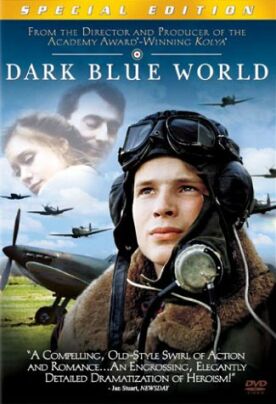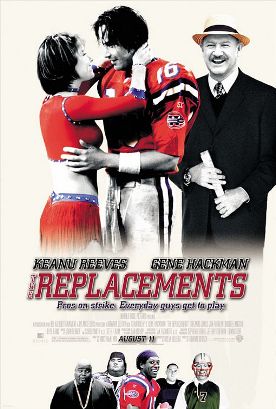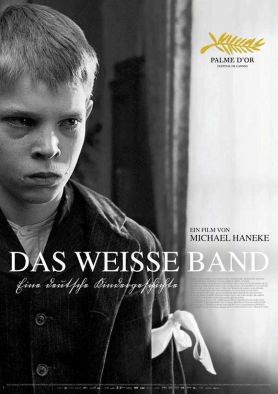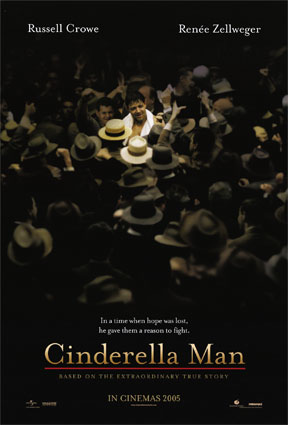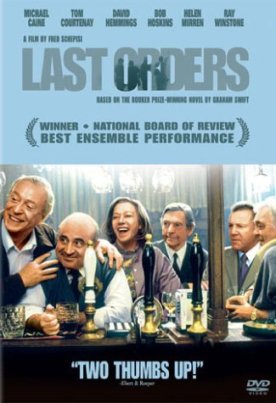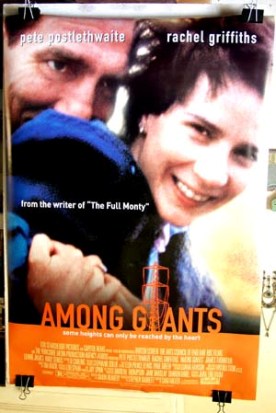Dark Blue World (Tmavomodry svet)
Dark Blue World, written by Zdenek Sverak and directed by Jan Sverak — the partnership that brought us the lovely Kolya (1996), is what Hollywood used to do but has somehow lost the knack of doing since it became hip and arty. It’s what Pearl Harbor tried to do and failed, which was to create an old- fashioned schmaltzy love- story set against the background of the “good war” of 1939-45. In fact, its plot is almost the same: two buddies join up together, become best of friends and comrades, fall out over the love of the same girl, and then are brought back together by the war. But Dark Blue World does a few things differently. For one thing, it puts its love story into a political and military context that doesn’t seem merely incidental.
It does this by using as a framing device its hero’s telling his story in flashback from a Czech prison, where he, along with the other returned Czech pilots in the RAF, has been sent by the post-war Communist government “from fear that they would fight for freedom again.” Franta Slama (Ondrej Vetchy), talking to another, non-military prisoner, remembers the time before the war when he was an officer in the Czech air force. With the Nazi takeover, he left his fiancée, Hanicka (Linda Rybova) and his beloved cocker spaniel and made his escape to England, along with his star flying pupil, Karel Vojtisek (Krystof Hadek), where both enlisted in the RAF.
As in Kolya, the gentle humor of the men and their adventures trying to learn English, practising flying on bicycles and trying to meet English women, at times almost threatens to unbalance the high drama of the war and the love story. The latter begins when Karel is shot down over southern England and knocks on the door of a country house. “I am an Breeteesh pie-lot,” he says in his thick Czech accent, and the beautiful Susan (Tara Fitzgerald), after first checking to see that he knows the capital of Czechoslavakia, lets him in. Her husband is in the Royal Navy and missing in action, and soon she allows herself to be seduced by the handsome young Czech.
But when he introduces her to his best friend, Franta, it is obvious that she is more attracted to him. At first Franta resists, insisting on his friendship with Karel, but of course love, or fate, is too strong for him. Karel finds out and will no longer speak to him. Franta mistakenly believes on one occasion that Karel has shot at him in the air, but when he reviews the combat film, it becomes clear that in fact it was a German plane which Karel had shot down, saving his life. Franta elaborately apologizes and begs to be forgiven, but Karel refuses to accept his apology. Of course you know that at some stage these comrades must be reconciled, but I’ll leave you to see the film to see how, which is no less moving for being entirely predictable.
The Sveraks, like all good filmmakers, have their own characteristic touches — little verbal tics or sight gags meant to keep up the undercurrent of gentle humor that bears the high drama of the main story just above ground level. Thus in the RAF situation room where targets and procedures are discussed in a classroom setting we see a poster on the wall next to the blackboard with a plane in a gunsight and the words “Aim Well” — and then in the next scene we see the same poster stuck up over the urinal. Nobody makes a point of the gag; it just floats in and out of our consciousness until it is succeeded by another.
Another such small touch is the motif of asking directions. When Franta and Karel are first at the RAF base, seemingly on duty only as “permanent reserves” they beguile the time by chat of how to talk to women. They watch as an older comrade goes to work on a couple of WAFs on bicycles. Older Franta explains to the almost babyish-looking Karel that he is asking directions to the officer’s mess, even though he knows the way very well. It is a good way to break the ice and it allows the women to feel all protective and motherly. How do you know that? asks Karel wonderingly.
Common knowledge, says Franta.
Later, when Karel is shot down and happens on the remote country house of Susan, he has to ask the directions in real earnest, and she in return asks him the capital of his country, looking it up in an atlas to check his answer. Then, he asks to be allowed to spend the night rather than go back to the base, and their short-lived affair begins. When she chooses Franta instead, the older man arrives at her house while the parents of some of her evacuated children are visiting. In order to be able to explain his visit, he pretends to be asking the way to London. She gives him directions but meaningfully tells him to drive slowly, as the roads are full of potholes. He stops along the road just out of sight and she soon joins him on the road for a passionate tryst under an avenue of overarching trees. Finally, when he comes to the house for the last time and realizes that her missing husband has at last returned — as a paraplegic — he again pretends to be seeking the road to London. She directs him, and he asks if he should drive slowly. Are there potholes in the road?
No, she replies. The potholes have been repaired. It is the last time he ever sees her.
Moments like these are of course not enough by themselves to make this a great film, but in their context they give it that something extra that it is easy to associate with the Sveraks — like the so called “Lubitsch touch” once associated, in the glory days of Hollywood, with Ernst Lubitsch. Perhaps it is an Eastern European trait, as Lubitsch was Hungarian.
The action is punctuated from time to time by a return to the prison infirmary back in Czechoslavakia after the war. Franta is being attended to by a former SS doctor (Hans-Jorg Assmann). “I know why I am here,” says the doctor to him. “We lost the war, so I have to be punished. But what did you do to them?” he asks, meaning the new Communist régime.
“Nothing,” says Franta.
Periodically, the doctor remarks that a German soldier wouldn’t have done this or that. Especially that he would not have made such a fool of himself over a woman. “Have you never been in love so much?” asks Franta. The doctor says he has not. “Then I pity you,” says Franta.
There is a beautiful ending, as subtle and witty and unaffectedly affecting as everything else in the film, after which a card comes up on the screen to tell us that the RAF pilots imprisoned after the war were all released in 1951 but not rehabilitated until 1991, after the end of the Communist régime.
Discover more from James Bowman
Subscribe to get the latest posts to your email.

